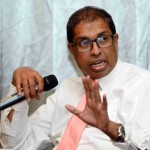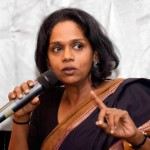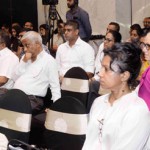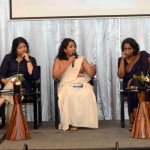News
SL among countries highlighted in report on curtailment of social media
View(s):Centralisation of power with the executive in Sri Lanka, India and Bangladesh has resulted in regulatory frameworks lacking effective judicial and parliamentary oversight over blocking orders, internet suspensions, and user data requests, states a new report on social media regulation.
The report titled “Social Media Regulation and Rule of Law: Key Trends in Sri Lanka, India and Bangladesh”, was launched in Colombo on Tuesday. The report is a joint effort of Konrad Adenauer Stiftung’s Rule of Law Programme Asia, LIRNEasia Sri Lanka, Centre for Communication Governance (CCG) at the National Law University Delhi (NLUD) India, and School of Law, BRAC University Bangladesh.
The extensive report highlights the impact of social media platforms on national security
and human rights, addressing challenges such as free speech, privacy, internet shutdowns, and content control.
The report also claims that censorship under the guise of state security concerns has curtailed legally permissible speech in all three countries, highlighting issues with overly broad and vague language, used to codify online and general speech-related offences. It adds that the
centralisation of power with the executive has fostered a lack of transparency and accountability in government actions, often justified by state security interests.
The report recommends adopting precise and narrow definitions of online harms and limit national security exceptions to reduce discretion and arbitrariness in enforcement. Another key recommendation is to overhaul the social media regulatory framework to prioritise online safety through preventive measures that enforce platform accountability and long-term reform. It also calls for a multi-stakeholder approach to policy making, ensuring diverse perspectives are considered. Another recommendation is to invest in capacity building for all stakeholders to cultivate technical and subject matter expertise.
The launch included a panel discussion featuring Saliya Pieris – Former President, Bar Association of Sri Lanka, Bhavani Fonseka – Senior Researcher & Attorney-at-Law, Centre for Policy Alternatives (CPA), Saritha Irugalbandara – Head of Advocacy, Hashtag Generation, Helani Galpaya – CEO, LIRNEasia, Tavishi Ahluwalia – Programme Manager, Center for Communication Governance, National Law University Delhi, and Saimum Reza Talukder – Senior Lecturer, School of Law, BRAC University. The discussion was moderated by Nalaka Gunawardene – Science Writer and Media Analyst.
(Please see our website sundaytimes.lk for pictures of the event )
The best way to say that you found the home of your dreams is by finding it on Hitad.lk. We have listings for apartments for sale or rent in Sri Lanka, no matter what locale you're looking for! Whether you live in Colombo, Galle, Kandy, Matara, Jaffna and more - we've got them all!







